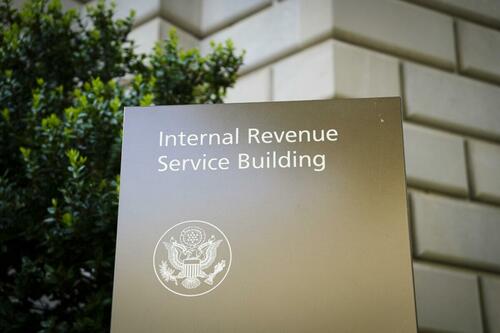
Washington, DC In the run-up to the 2024 elections, a large number of Americans felt that they were not as wealthy, safe, respected, or healthy as they should be. They had a feeling that these deficits were not their fault but were the results of something wrongfully done to them or taken from them. The genius of Donald Trump was to validate and exaggerate these fears and convert them into votes for himself.
For most Trump voters, the most important issue was the economy. Trump claimed that Biden and the Democrats had “destroyed” the American economy despite the fact that the Biden administration had engineered a proverbial “soft landing” coming out of an economically disastrous pandemic which he had failed to manage. However, the political Achilles heel of this vibrant economy was inflation.
The average voter had little first-hand knowledge of the positive aspects that made the American economy. They cared even less for these aspects when he or she had to pay more for groceries, fuel and housing. Trump was able to convert this inflation factor and Democrats’ attempts to downplay its significance into validation that the Biden administration, including Kamala Harris, had destroyed the American economy.
Immigration was a second leading issue for Trump voters. Many Americans did not feel as safe as they believed they should be. Lurid accounts of car-jackings, murders, robberies and even mass shoplifting left many Americans uneasy, even though overall crime levels were down.
Here, Trump had a ready answer for this fear. Safety had been taken from the average American by those largely black and brown immigrants. Other countries were sending their murderers, rapists and insane, pet-eating criminals into America.
According to Trump, Biden and Harris had deprived average Americans of safety on purpose to allow non-citizen immigrants to vote for Democrats. Many voters swinging to Trump were motivated by what they saw as a lack of respect for their beliefs and for them personally. Harris and the Democrats made it plain that they opposed core beliefs held by many Americans on anti-abortion or “right to life”, anti-homosexuality, anti-transgender and pro-Christian nationalism.
Trump was able to motivate many who held these beliefs to get off the couch, register and vote for him. Coming out of the pandemic, there were also voters concerned about declines in health for them or family and friends close to them. Observable increases in such neuropsychological disorders as autism blended with lingering resentment over masking, vaccinations, social distancing shutdowns and quarantines.
Many Trump supporters were led to believe that Trump had been right about Covid and that measures to combat the pandemic had been intentional impositions foisted on average Americans. Trump’s embrace of such figures as Robert F. Kennedy, Jr.
and his anti-vaccination, anti-fluoride positions confirmed to some that perceived health deficits were not naturally occurring phenomena but were a result of actions by Democrats. But how did Trump turn many voters’ fears into action in his favour? His operational tactics remained the same as they had been since fighting charges of his companies’ racial discrimination in the earliest days of his career. The Trump bedrock tactic remained―attack, attack, attack.
Describe your opponents as enemies in vulgar and offensive terms. Never show weakness or doubt. His remarkable response to assassination attempts was impressive in this regard.
Also Read Trump returns to presidency stronger than before, but remains just as unpredictable Illegal immigrants: Democrats’ message came across as vague, preachy and hopelessly removed from reality Trump International Hotel: The only place outside White House where Trump ever dined in his first tenure Trump’s approach to foreign policy meshes well with Modi’s bent towards strategic autonomy A second tactical tenet was to use exaggerations and outright lies to create a view of reality in his favour. The Washington Post fact checker documented more than 30,000 false or misleading claims Trump made during his presidency, and this continued into his four-year long campaign to regain the White House. His statements that he had won the 2020 election and the crowds storming the Capitol on January 6 were simply patriotic Americans trying to “stop the steal”, was symbolic of this strategy.
In the event, these falsehoods played into Trump’s overall grievance validation and exaggeration strategy, and falsehoods concerning the economy, immigration, core beliefs and even health were particularly prominent. One must not underrate the entertainment skills that Trump brought to the campaign as a part of the “how” he was able to win. Trump rallies were never dull and even, at times, humorous.
Using skills that he had honed over 15 seasons as the star of the reality television series The Apprentice , Trump knew how to captivate an audience. He knew how to create impressions that are entertaining and appear real in the eye of the beholder already inclined to his narrative for the occasion. Whether Trump gains and retains unprecedented power within the American governmental system is largely in the hands of the Republican party.
Republicans will have control of both executive and legislative branches and unprecedented influence over the judiciary. Trump’s control over the party, thus far, has been based on his political success with voters. Very few Republican leaders have the courage to stand up to Trump.
Those who did stand up to Trump were quickly subdued or dispatched politically. However, if Trump meets with a crisis that causes a political disaster in the 2026 midterms, the Republican leaders will likely drop him. In the absence of a crisis he cannot meet, his appeal will be enduring and fundamentally change American government and politics for the foreseeable future.
The author was US assistant secretary of commerce for trade development.














